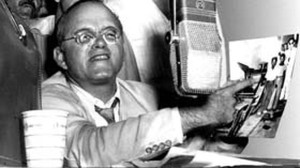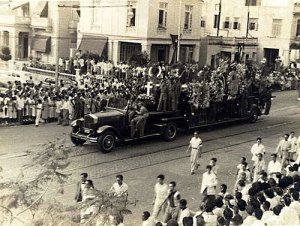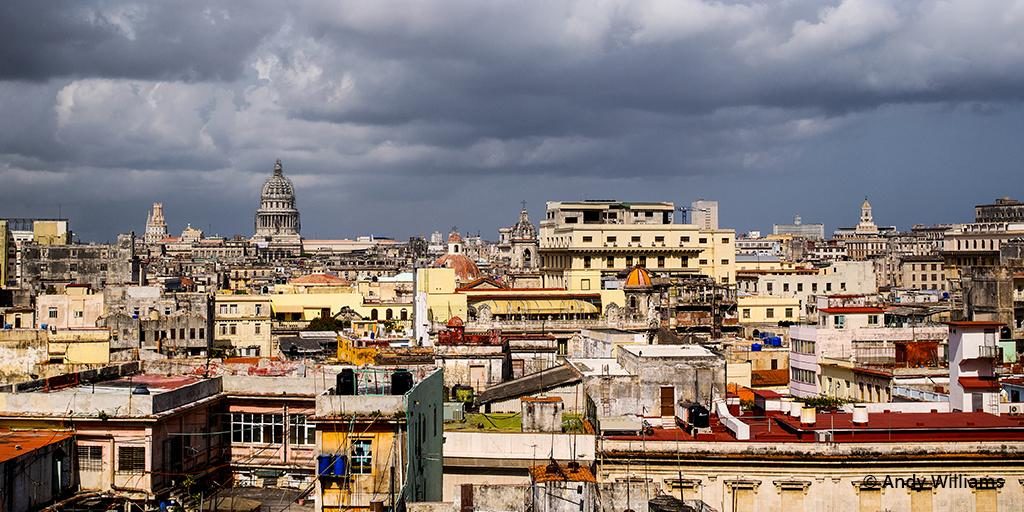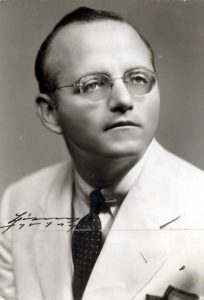EDUARDO R. CHIBÁS, POLITICIAN, FOUNDER OF THE CUBAN PEOPLE’S ORTODOXOS PARTY. PHOTOS
Eduardo René Chibás Ribas born in Santiago de Cuba, capital of the province of Oriente, on August 26, 1907. His father Ing. Eduardo Justo Chibás was of Guantanamo origin. His mother Gloria Ribas Agramonte, was from Camagüey. His uncle was Eduardo Agramonte, Secretary of Foreign Affairs of the Cuban government in the first Independent war.
He was a Cuban politician who used radio to broadcast his political views to the public. He primarily denounced corruption and gangsterism rampant during the governments of Ramón Grau and Carlos Prío which preceded the Batista era. He believed corruption was the most important problem Cuba faced.
His parents were Eduardo Justo Chibás Guerra and Gloria de Ribas Agramonte.
Enter first at the University of Havana on September 30, 1926. On December 5 of that same year, the student leader Julio Antonio Mella declares a hunger strike; Chibás as part of a student protest in Central Park in the capital begins for him a long series of arrests.
Chibás is considered to have had an influence on Fidel Castro’s views but his name is not mentioned in today’s Cuba because he was avowedly anti-communist. However, Fidel Castro wrote an essay praising him, published in the Communist Youth newspaper Juventud Rebelde on August 26, 2007.
Chibás took a decisive part in the discussions of the articles of the Constituent Assembly meeting. In one of his propositions military attack Communist Russia against the small nation of Finland pay. In his defense we can cite one of his speeches, “I condemn the imperialist war, condemned the predatory war, condemn war of aggression and celebrate the holy war of the peoples fighting for their independence and freedom” At this preposition opposed the communist delegates, but was passed without their votes.
In 1940 following election is declared elected president Fulgencio Batista, with the backing of the military, the wealthy classes of the nation, and a well-paid political machine. In these elections, Batista also had the support of the Cuban Communist Party, who was rewarded for his contest, two ministers without portfolio, Carlos Rafael Rodriguez and Juan Marinello.
In 1947 he formed the Ortodoxos party which had the goal of exposing government corruption and bringing about revolutionary change through constitutional means. Castro also joined as he considered Chibás as his mentor. Chibás lost the 1948 election for president, coming in third place. He was an extremely strong critic of that election’s winner, Carlos Prío Socarrás.
On August 5, 1951, Eduardo Chibás walked into radio station CMQ in Havana, for his weekly radio broadcast. That day he had promised to furnish the evidence supporting his claim that education minister Aureliano Sanchez Arango was embezzling money. Instead, he talked about other topics, warned that Fulgencio Batista might attempt a military coup, and made a farewell statement.
Chibás, who was also a senator, was supposed to present evidence from congressmen supporting his claim, who ultimately refused to do so, and Chibás believed that killing himself was the only way he could apologize for his inability to keep his promise. Mr. Chibas shot himself during his weekly radio show; however, he had forgotten that his allotted radio time was only 25 minutes. The shot took place while the commercial ad with “Cafe Pilon” was running, thus, eliminating the planned effect of “his grand finale”.
The whole country grieved for Chibás, who was initially expected to survive, but after eleven days of intensive care, he died in the hospital of his wounds on August 16, 1951, in Havana.
He is buried in the Colon Cemetery, Havana. His funeral was attended by hundreds of thousands, and it has been speculated that he might have been a contender for the 1952 presidential elections.
Batista took the government by force on March 10, 1952.
EDUARDO R. CHIBÁS, POLÍTICO, FUNDADOR DE LA FIESTA ORTODOXOS DEL PUEBLO CUBANO. FOTOS.
Eduardo René Chibás Ribas nació en Santiago de Cuba, capital de la provincia de Oriente, el 26 de agosto de 1907. Su padre el Ing. Eduardo Justo Chibás era originario de Guantánamo. Su madre Gloria Ribas Agramonte, era de Camagüey. Su tío fue Eduardo Agramonte, secretario de Relaciones Exteriores del gobierno cubano en la Primera Guerra Independiente.
Fue un político cubano que utilizó la radio para transmitir sus opiniones políticas al público. Principalmente denunció la corrupción y el gángsterismo desenfrenado durante los gobiernos de Ramón Grau y Carlos Prío que precedieron a la era de Batista. Creía que la corrupción era el problema más importante que enfrentaba Cuba.
Sus padres fueron Eduardo Justo Chibás Guerra y Gloria de Ribas Agramonte.
Ingresa primero a la Universidad de La Habana el 30 de septiembre de 1926. El 5 de diciembre de ese mismo año, el dirigente estudiantil Julio Antonio Mella declara una huelga de hambre; Chibás como parte de una protesta estudiantil en Central Park en la capital comienza para él una larga serie de detenciones.
Se considera que Chibás influyó en las opiniones de Fidel Castro, pero su nombre no se menciona en la Cuba de hoy porque se declara anticomunista. Sin embargo, Fidel Castro escribió un ensayo elogiándolo, publicado en el diario Juventud Rebelde de la Juventud Comunista el 26 de agosto de 2007.
Chibás participó decisivamente en la discusión de los artículos de la reunión de la Asamblea Constituyente. En una de sus proposiciones, los militares atacan a la Rusia comunista contra la pequeña nación de Finlandia. En su defensa podemos citar uno de sus discursos, “Condeno la guerra imperialista, condené la guerra rapaz, condeno la guerra de agresión y celebro la guerra santa de los pueblos que luchan por su independencia y libertad” A esta preposición se opusieron los delegados comunistas, pero fue aprobada sin sus votos.
En 1940, después de las elecciones, se declara electo presidente Fulgencio Batista, con el respaldo de los militares, las clases pudientes de la nación y una maquinaria política bien pagada. En estas elecciones, Batista también contó con el apoyo del Partido Comunista de Cuba, quien fue premiado por su contienda, dos ministros sin cartera, Carlos Rafael Rodríguez y Juan Marinello.
En 1947 formó el partido Ortodoxos que tenía el objetivo de exponer la corrupción del gobierno y lograr un cambio revolucionario por medios constitucionales. Castro también se unió al considerar a Chibás como su mentor. Chibás perdió las elecciones presidenciales de 1948, quedando en tercer lugar. Fue un crítico muy fuerte del ganador de esa elección, Carlos Prío Socarrás.
El 5 de agosto de 1951, Eduardo Chibás ingresó a la estación de radio CMQ de La Habana, para su transmisión radial semanal. Ese día había prometido proporcionar las pruebas que respaldaban su afirmación de que el ministro de Educación, Aureliano Sánchez Arango, estaba malversando dinero. En cambio, habló de otros temas, advirtió que Fulgencio Batista podría intentar un golpe militar y se despidió.
Se suponía que Chibás, quien también era senador, presentaría pruebas de los congresistas que respaldaban su reclamo, quienes finalmente se negaron a hacerlo, y Chibás creía que suicidarse era la única forma en que podía disculparse por su incapacidad para cumplir su promesa. El Sr. Chibas se pegó un tiro durante su programa de radio semanal; sin embargo, había olvidado que su tiempo de radio asignado era de solo 25 minutos. La toma tuvo lugar mientras se estaba ejecutando el anuncio comercial de “Café Pilón”, eliminando así el efecto planeado de “su gran final”.
Todo el país lloró por Chibás, quien inicialmente se esperaba que sobreviviera, pero luego de once días de cuidados intensivos, murió en el hospital de sus heridas el 16 de agosto de 1951, en La Habana.
Está enterrado en el Cementerio de Colón, La Habana. A su funeral asistieron cientos de miles, y se ha especulado que podría haber sido un contendiente para las elecciones presidenciales de 1952.
Batista tomó el gobierno por la fuerza el 10 de marzo de 1952.
Agencies/ Various/ Wiki/ Internet Photos/ Arnoldo Varona/ www.thecubanhistory.com
THE CUBAN HISTORY, HOLLYWOOD.













